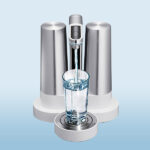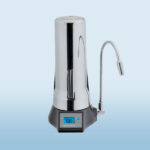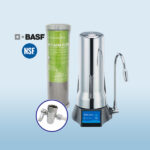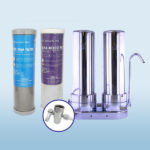
All parents acknowledge how important it is for children to drink water. But did you know that you can tell whether your child has been drinking enough water just by looking at his/her pee?
Urine is the by-product of our bodies that carry away waste and excess water. The yellow tinge it gets is from the pigment urochrome. A pale yellow would indicate that the child is hydrated while darker shades of yellow to orange might be an indication of dehydration. Because 60-70% of the human body is made up of water and it supports many bodily functions, it’s vital for children to stay hydrated. Let’s explore some other hydration facts that parents need to be aware of:

1. Children need even more water than adults
It’s a misconception that children are smaller and therefore need to drink less. Children are actually more susceptible to dehydration because of their higher metabolic rates and increased body surface area to mass index. As every parent has experienced, children are often very active and therefore tend to lose more water and electrolytes through perspiration. Children and infants also have a higher body water content and require proportionally more water intake to maintain fluid equilibrium within their bodies.
Kids Total Daily Beverage and Drinking Water Requirements

Data are from Institute of Medicine of the National Academies. Dietary Reference Intakes (DRIs) Tables. Recomended Daily Allowance and Adequate Intake Values: Total Water and Macronutrients. Credit: Institute of Medicine of National Academics
2. Dehydration causes decreased cognitive performance
For children, dehydration happens very quickly. This causes their body temperature to increase and could cause the brain to overheat. Multiple studies have shown that ensuring children stay hydrated helps their cognitive performance. Children who are more hydrated seem to perform better at multitasking, with an increased mental flexibility, memory and faster reaction times. The association between water intake and cognitive performance is important for parents to note as greater performance on cognitive control tasks is predictive of academic achievement.
So parents, make sure your children take their water breaks and are sufficiently hydrated.
3. Dehydration is linked to many other health issues in children
Dehydration happens when one’s body loses more fluid than it intakes and the body does not have enough water to carry out its normal bodily functions. This happens at a cellular level and brings a host of health issues that parents need to be aware of:
- Urinary and kidney issues – Prolonged and repeated bouts of dehydration can lead to kidney issues as waste builds up in the body. There is the possibility of kidney stones forming or developing urinary tract infections.
- Constipation – water and fibre help in regulating childrens’ bowel movement and dehydration oftens leads to hard stool that is difficult to pass out of the gastrointestinal tract
- Impaired metabolism – when a child’s body is in a dehydrated state, their metabolic rate slows down. As the muscles are not fully hydrated, their ability to generate energy is also inhibited.
How Alkaline Ionized Water is generated?

4. It’s not just about any water but high quality water
While keeping hydrated is good, not all water is the same. Alkaline Ionized water is water that has gone through a special filtration process. It is supercharged with negative hydrogen ions as a result of molecular restructuring, giving it the super antioxidative property that fights free radicals within the body. Over time, drinking alkaline Ionized water has the ability to turn one’s tissue into an alkaline state and dissolve acid-former matter such as kidney stones and gallstones.
Not being sufficiently hydrated has dire consequences so it is necessary parents remember to monitor their children’s water intake. In addition, it’s also important to understand how to differentiate high quality water and the benefits it brings.
Keen to find out more facts about hydration? Stay tuned for webinars and upcoming contests!
This is part 1 of the Hydration Literacy For Parents series brought to you by H2O LIFE SOURCE – is a leading water science company in Asia.
By Jasmine Chua.












